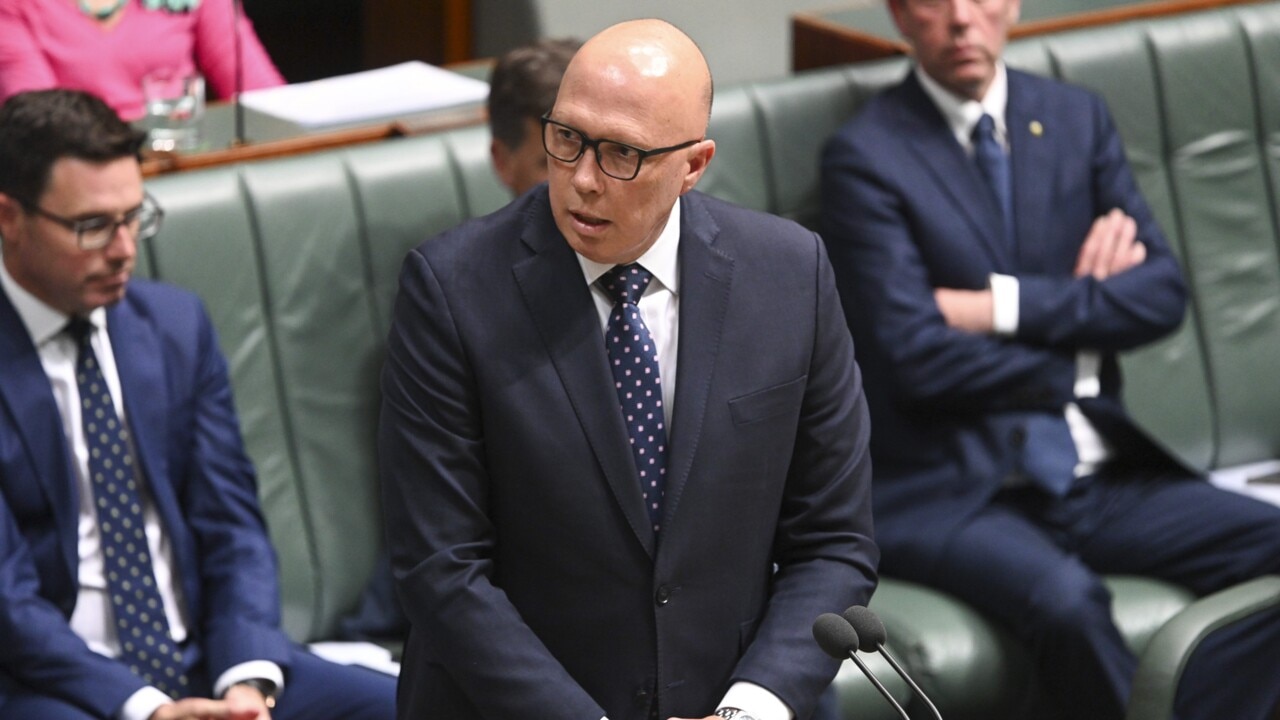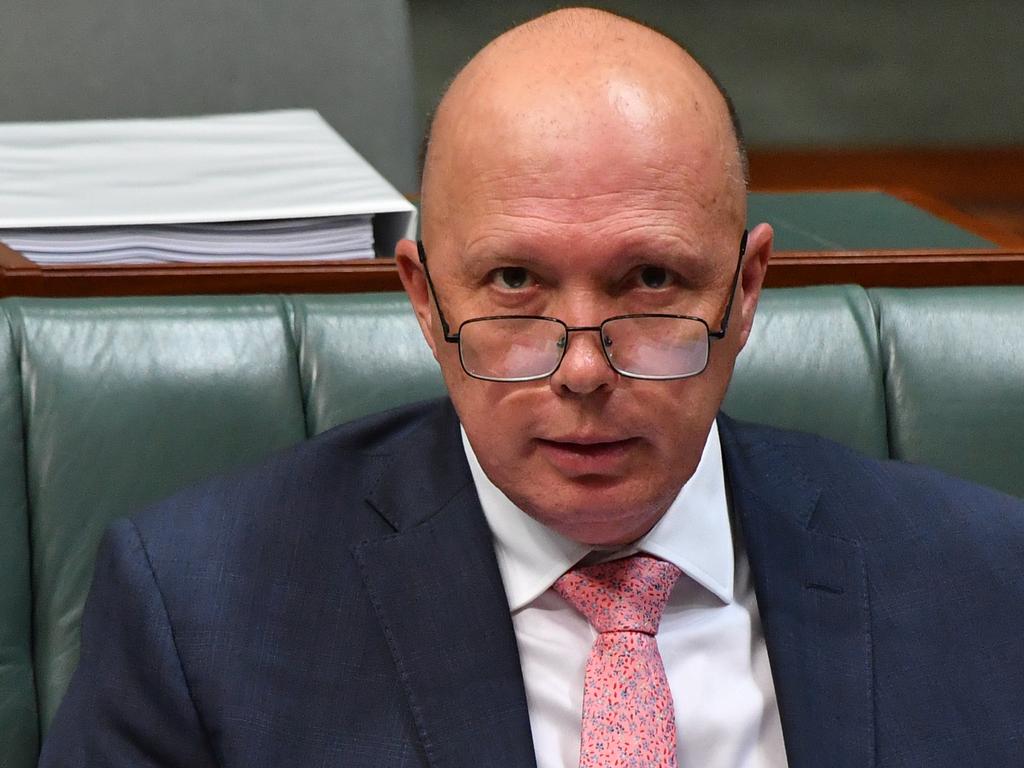
The 2023 Intergenerational Report, prepared by Treasury, mapped the inexorable future short of a policy revolution – personal income tax will boom from contributing a record 50.5 per cent of total tax receipts in 2022-23 to reach 58.4 per cent in 2062-63. That trajectory reveals the power of the trend.
To grasp the craziness of Australia’s experiment, at the turn of the century when John Howard was in office the personal income tax share of tax total was just over 40 per cent.
The iron law of politics says the current trend is obviously unsustainable but the opposing iron law says the scale of tax reform needed to fix the problem is equally unsustainable.
Australia is in a long-run trap. In the short term, it faces a fraudulent election campaign in 2025, a bitter brawl over Labor’s changes to the stage three tax cuts, only destined to mislead about the challenges arising from current income tax trends.
The IGR report, looking at the next 10 years, said personal income taxes equated with 11.7 per cent of GDP in 2022-23 but are projected to increase to 13.5 per cent within the decade – a hefty lift in a relatively short time. The political time bomb is ticking.
But there’s a catch because the actual situation is worse. The IGR said “taxpayers have declined as a share of the total population since peaking in 2005-06”. A smaller proportion of the population is going to be paying a larger proportion of the tax revenue.

Our excessive reliance on personal income tax is colliding with demography and nothing will halt the march of demography, with the IGR saying the personal income tax base will “continue to narrow in line with the projected decline in workforce participation”. There are now four people working for every person over the age of 65 years and this will fall to 2.7 people at 2060.
There are two things you need to know about Labor’s tax revamp – it’s a tax redistribution and it’s a massive breach of Labor’s election mandate. You need to put them together.
The tax redistribution, compared with the Morrison government’s legislated stage three, means Labor’s big number of winners get a relatively small amount of dollars (about $16 a week at average weekly earnings) while Labor’s much smaller number of losers lose a relatively large amount of dollars (about $88 a week for someone on $200,000). Labor says above $146,000 you pay more.
The moral is the days of tax reform with all-round winners is dead. If you doubt this, check out the long-run budget deficit projection for the next decade. Labor’s decisions last week offer an insight into the future – the fiscal squeeze means redistribution, winners and losers, is now the name of the game.
Independent economist Saul Eslake said unlike the Howard government’s GST-led tax reform, the situation we now face is fundamentally different because “some individuals and groups within the Australian community are going to have to be made worse off and it may well be that a large proportion of the population will have to pay more tax, in some form or other”.
How is that to be managed? Labor offers one model: don’t bother about a mandate, just do it. If Labor had opposed the stage three tax cuts at the last election it would have probably lost. Being in office is different – it will legislate its package and seek the public’s consent post-event.

Will the experience persuade Labor to offer a more ambitious tax agenda at the 2025 election, dealing with negative gearing, capital gains or superannuation taxes?
Don’t hold your breath. Only a deluded optimist or a teal searching for a way to justify Labor’s tax revamp is likely to believe that.
It is astonishing that Jim Chalmers, when asked about more tax reforms (negative gearing and franking credits), said “we haven’t changed our view” and Labor was “not contemplating” such reforms.
Sound familiar? It’s the language used for years ruling out changes to stage three.
Welcome to the new politics on tax changes. Nothing is happening until circumstances change and Labor gets Treasury to whistle up new advice on new circumstances. Sure beats seeking a mandate. And with a progressive Senate, you don’t need to worry about parliamentary authorisation.
The real point, however, is there’s no obvious way forward, trying to halt the aspiration-killing march of personal income tax within an equitable and politically viable policy framing.
The growth in income tax collections is having a direct political impact on many households, as was apparent from the national accounts, released in December. While rising interest rates have incurred virtually all media attention and electoral complaint in the cost-of-living crisis, the rise in income tax has been as potent if not more potent.

Comparing data from the national accounts and looking at the two-year period (September quarter 2021 to September quarter 2023), Judo Bank chief economic adviser Warren Hogan said: “Income taxes have been a bigger drain on household disposable income than have interest payments.”
Hogan’s analysis shows income tax paid by households rose from $65.1bn in September 2021 to a whopping $91bn two years later, an astonishing increase that drives the budget bottom line recovery and derives from bracket creep, high migration and a strong labour market. The real surge has come in the last 12 months, from $73.7bn to $91bn, September to September. By comparison, mortgage interest payments increased from $11.2bn to $29.7bn across the same September quarters comparison, 2021 to 2023. While in percentage terms the mortgage payment increase is higher, the dollar value of the increase in income tax is far larger.
Hogan told this column: “There has been a misconception that this was all the fault of the Reserve Bank and that has suited the government.
“Yet this has been a far broader public policy issue. This government has basically spent its first 18 months in office blaming the RBA for all the misery out there when it is actually income tax that has gone up more.
“Bracket creep has had a bigger impact on middle-income Australia than the RBA’s interest rate rises.
“There will be arguments that bracket creep is not the only factor driving higher income taxes – promotions and a growing labour force – but I think this is clutching at straws. At the moment we have an excessive reliance on income tax, on personal income tax in particular, and an extreme reliance on the top 20 per cent of income earners.”
Labor’s tax revamp will invite truckloads more analysis of the flaws in our tax system. One answer is to index the rate scale; but the politicians hate that idea. Forget it.
They prefer what we do now – periodically cut taxes, cynically brag about making people better off, but merely preside over increasing the personal income tax burden, and hope upon hope to avert the big smash inherent in a system that needs large-scale reform.








Australians should enjoy their July 1 tax cuts because working middle-class people are destined to be throttled on higher personal income taxes many years into the future – the real economic and political secret in Labor’s tax policy reversal.